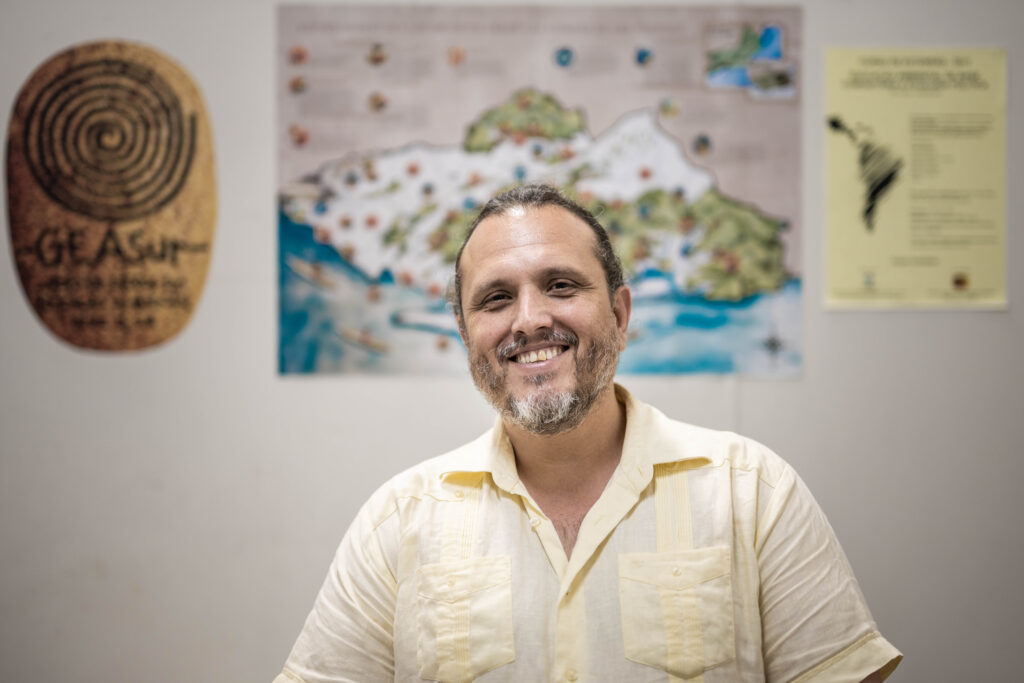Elections in Brazil are tomorrow, October 2, 2022..
While the anti-democratic narrative of President Jair Bolsonaro (view this analysis) has attacked the Brazilian electoral system, different political experts interviewed by Peninsula 360 have explained that this is a very remote possibility.
Carolina Botelho, a specialist in Brazilian politics at Berkeley's Center for Latin American Studies, with whom we had the privilege of speaking in person on the streets of Rio de Janeiro says that "it's a way of making elections that we didn't do before. With more security. You have to remember that in the past elections could be subject to fraud, but not today".

The democratic system has incorporated changes since 1994 to ensure that all Brazilians can vote easily and securely. The Brazilian experience since then has been characterized by a rapid transition to universal electronic voting. This technology guarantees that the votes on the ballots cannot be modified to give preference to one candidate or another.
Tomorrow, 156 million Brazilians are expected to go to the polls to elect a new president, governors and hundreds of members of the federal and state legislative bodies; state deputies of the country's 26 states plus the federal district will also be elected.
There is a lot of popular confidence in Brazil's electoral system.
Electronic voting is considered an innovative technology. "In Brazil, since these ballots were installed thirty years ago, there has been no evidence of fraud." explains Botelho. She holds a PhD in political science from IESP / UERJ, a master's degree in sociology and anthropology from UFRJ and a bachelor's degree in social sciences from UFRJ.
One of the main characteristics of the Brazilian evolution towards electronic voting has been the large role played by the Superior Electoral Court (TSE) - the institution responsible for election management, promotion and implementation of electronic voting, and the relatively small role of civil society and watchdog groups, until recently.
Voting in Brazil is mandatory for anyone between the ages of 18 and 70, and unless you have a good justification for not going to the polls on election day, you must vote. The person's name is on a list, the list is checked against the person's identity card, and then the person is given access to the box where the electronic machine is located.
Voting machines were created to be small and light, so they can be taken anywhere, even to remote parts of the Amazon. And, if for some reason someone could hack a machine, it would be just that, a machine.
In past elections, cohesive groups had tried to manipulate people's votes by asking the person for a photograph of their vote. To prevent this, cell phones and cameras are not allowed in polling stations.
Bolsonaro's narrative throughout the election has been anti-democratic, and he has directly attacked Judge Alexandre de Moraes, of the Supreme Federal Court, on several occasions stating that the electoral system is not to be trusted and that, according to Bolsonaro, fraud may occur in Brazil.
However, political scientist and expert on Brazilian elections, Adrian Alabala, professor at the Institute of Political Science in Brasilia, states that "it should be remembered that the current president [Bolsonaro] and his children were elected through the same democratic system that he criticizes today."
The president is trying to discredit a powerful democratic resource that Brazilians have worked for many decades to put in place. Bolsonaro was elected with the same system in past elections. "This is, to say the least, contradictory and forgotten," Botelho continues.
The trend in the polls clearly marks that Bolsonaro is restricting himself to a very specific group, basically his base and from there he is not able to reach other sectors of the population. There is very little chance of reelection.
The possibility of Bolsonaro winning the election cannot be ruled out, says Albala. However, opinion polls indicate that the president is on track to lose the election and, as such, is building a narrative of fraud that, should Bolsonaro lose, could detonate violence from his supporters, many of whom are military, police and even armed civilians.

According to Celso Sanchez, from UniRio, Bolsonaro's speech, amplified on social networks by his supporters, not only questions the Brazilian electoral system - the same one that brought him to the presidency - but also encourages electoral violence, particularly towards historically marginalized sectors of the population, against which Bolsonaro has strongly attacked during his mandate: indigenous people, Afro-descendants - called quilombolas -, women and LGBTTTIQ+.

It is dangerous for people to validate Bolsonaro's intentions, his narrative and the electoral dynamics he is trying to set in motion, Botelho says we can perceive that this has more to do with creating a solution for him in case he loses the elections. "Up to this point, there is no evidence of fraud in the elections. What we do have evidence, so far, is that this president's chances of reelection are very low, and have worsened over time."
Brazil has a very weak president, electorally speaking," says Albala. Some research shows that a wave of disinformation, hatred and racism has permeated during these elections.
According to Sanchez, Brazil is experiencing a "dramatic moment of violence." After the 2018 murder of black councilwoman Marielle Franco in Rio de Janeiro, many black women across the country followed her legacy of social activism. However, Sanchez denounces, political violence against these activists, and even with academics working with them, has increased in the current electoral context: "threats are received almost daily."
Botelho's analysis is that Bolsonaro may be trying to set something in motion to address a possible loss in future elections. Similar to what Donald Trump generated during the U.S. elections in 2020, and the assault on the Capitol on January 6. "That's probably why Bolsonaro is out to discredit the electoral system" explains Botelho.
The electoral justice system has responded firmly to his accusations and has shown the population that fraud is not possible, and that Bolsonaro's anti-democratic narrative is an attempt to gain some political advantage in case he is defeated.
Brazilians will vote tomorrow, however, the possible outcome for this election are pieces of a puzzle that will only be revealed over time, and pieces that - some - have already fallen into place. How will Bolsonaro react to a possible defeat? More importantly, how will Bolsonaro's supporters respond? Will the wave of violence and disinformation continue after the election?
This article was produced with the support of the organization Global Exchange in collaboration with Peninsula 360 Press.
You may be interested in: "Lula is going to win in the first round": Landless Rural Workers' Movement




